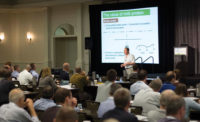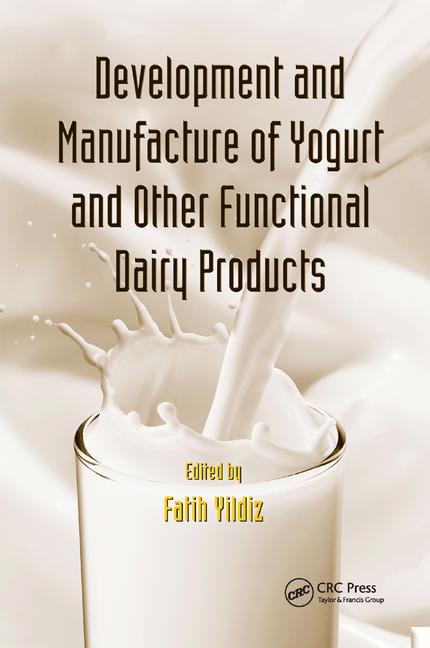Membrane Technology Forum to offer Product Development sessions

The Membrane Technology Forum, taking place June 10 to 12 at the Doubltree in St. Paul and presented by Dairy Foods and the American Dairy Products Institute, will offer dynamic technical sessions that are catered to the latest trends and topics in the membrane technology sector. Industry experts will be presenting to you new ideas and data informed solutions to help your company grow with the constantly evolving trends in membrane technology.
In addition to several hours of dedicated networking, this year's event will feature more than 20 presentations led by some of the progressive thinking membrane experts. Below you will find more information on four educational sessions.
Dairy Foods announced it will offer four sessions on Product Development:
- Developing Scalable Membrane Filtration Solution: Development of a membrane filtration application relies on a number of a process and product optimizations which are necessary steps incorporated during the feasibility and scale-up studies. From considerations of the suitable membrane configuration and chemistry to adequate pretreatments, to understanding of the product characteristics and down to the selection of proper mechanical and physicochemical parameters, each of these plays an important role in improving the efficiency of the process and enhancing product quality. Our focus, through this presentation, is to highlight novel and important design and developments that improve the performance of membrane separation processes across a diverse spectrum of food and dairy applications. Shanti BhushanSpecialist Membrane Technology, GEA Systems North America, will provide this speech.
- Cost-Efficient UF Membrane Pore Size Determination for Dairy and Nondairy Products: Ultrafiltration (UF) membranes are vital when processing dairy and non-dairy products. For optimal performance and to prevent the loss of high-value products, accurate identification of the largest pore sizes is crucial. To quantify pore size, the molecular weight cut-off (MWCO) test is typically used in conjunction with high-performance liquid chromatography (HPLC). HPLC maintenance and the high-cost HPLC-grade markers make extensive MWCO testing cost-prohibitive. To address these barriers, we will examine a more-accessible and cost-effective approach to assess the separation performance of flat sheet UF membranes. John Charest, Membrane Scientist, Vandstrom, will provide this speech.
- Enhancing Quality, Safety, and Efficiency with New Controls Technology: This presentation will focus on the recent advancements and improvements in membrane technology, specifically in the food processing industry. The food processing industry is complex and demanding, requiring high levels of quality, safety, and efficiency. The presentation will introduce new controls technology that can help food processors achieve these goals by providing innovative solutions for various applications, such as clean-in-place (CIP), thermal and UV pasteurization, and general process recording and tank monitoring. The presentation will highlight the PPR, a versatile and user-friendly product that can handle multiple tasks and integrate seamlessly with existing systems. Through case studies, examples, and customer testimonials, the presentation will demonstrate how the PPR can improve performance, reliability, and profitability while reducing environmental impact and enhancing regulatory compliance. Attendees will gain a better understanding of how new controls technology can optimize food processing processes and help achieve business objectives. The session will also look forward to address anticipated future challenges related to customer implementation. Seth Hanson, Implementation Manager, Anderson-Negele, will provide this speech.
- Sustainable design of reverse osmosis membrane processes in ingredient production: Many F&B producers face complex challenges in improving manufacturing performance due to cost pressures, high quality demands, increasing new product introductions, and sustainability targets, all while streamlining production. Using digital design through process modeling techniques can aid in process development and optimization. We collaborate with companies to leverage process modeling tools to drive physics-based understanding of F&B processes, including membrane filtration. Examples of applications include polyphenol purification, whey protein concentrate production, beer recovery, and much more. One example this session will cover in detail is from leading plant-based ingredients producer Roquette. Roquette uses reverse osmosis (RO) membranes to remove product impurities that can lead to high diafiltration water usage and substantial energy needs to evaporate/concentrate the resulting waste stream. Process modeling reduced diafiltration water usage by about 20% and downstream evaporation energy consumption by about 65% compared to a reference operating schedule. Chris Polster, Pre-Sales Solutions Consultant Food & Beverage, Siemens Industry Software, will provide this speech.
To register or learn more, visit www.membraneforum.com.
Looking for a reprint of this article?
From high-res PDFs to custom plaques, order your copy today!







